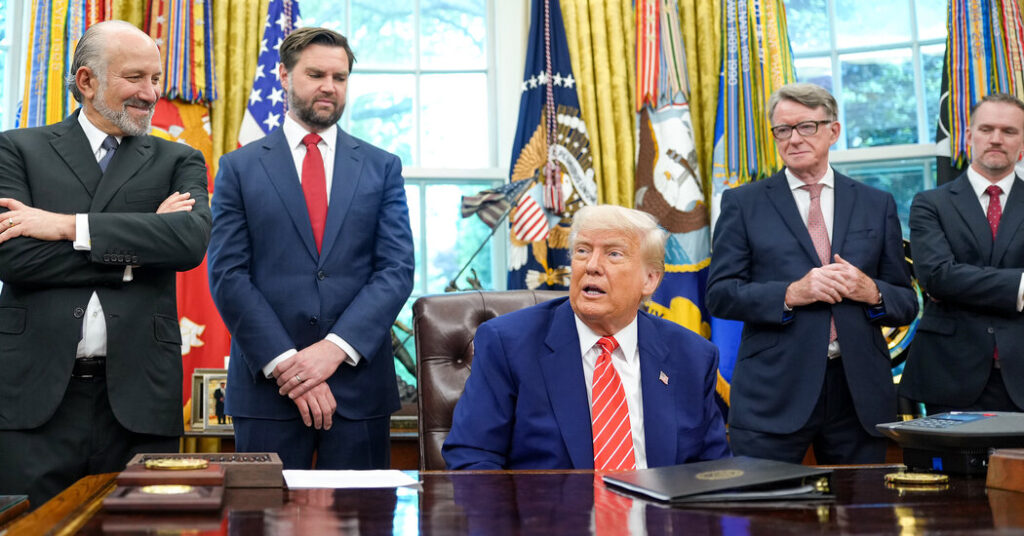President Trump said Britain had agreed to increase market access for billions of dollars of American exports, including beef, ethanol and other farm products under a new trade deal — but left many of the details to be worked out later.
The agreement — promoted by Mr. Trump as the first of many that will result from his efforts to blow up the global trading system — appeared to be more of a framework than a full trade deal. Both sides agreed to drop tariffs on specific products and made general agreements in other areas, but officials from both governments will still need to meet in the coming months to hammer out specific language. That can be a tricky and difficult process, leaving open the possibility the agreement could still fall apart.
Nevertheless, the leaders of both nations hailed the framework in joint announcements on Thursday that invoked the deep relationship between their countries. Speaking from the Oval Office and with Prime Minister Keir Starmer of Britain on speakerphone, Mr. Trump called it a “great deal for both countries.” Mr. Starmer called it a “really fantastic historic day” and invoked one of Mr. Trump’s favorite historical figures by noting that it was the 80th anniversary of Winston Churchill announcing victory in Europe in World War II.
The agreement will leave in place a 10 percent tariff that Mr. Trump imposed on Britain and other nations globally at the beginning of April. But it will pare back other tariffs Mr. Trump imposed on British steel, aluminum and automobiles. In return, the British will open up access to beef, poultry, ethanol, soft drinks, cereal and other products.
Britain’s government said tariffs on its auto exports to the United States would fall from 27.5 percent to 10 percent for a quota of 100,000 British vehicles. It also said U.S. tariffs on British steel would fall to zero. Mr. Trump’s commerce secretary, Howard Lutnick, said Rolls-Royce engines and plane parts will come over tariff-free, while the United Kingdom will buy $10 billion of Boeing airplanes.
Whatever deal that is finalized may ultimately be more important to Britain than the United States. Britain occupies the No. 11 spot among the United States’ biggest trading partners — it represented 2.9 percent of total U.S. trade in the first quarter of the year — while the United States is Britain’s largest single trading partner. Even so, most of that trading relationship is in services, which aren’t affected by tariffs.
Although Trump officials framed the deal as a result of the aggressive tariffs Mr. Trump imposed around the world, there has been longstanding interest in an agreement. Mr. Trump discussed the possibility of a trade deal with Britain in his first term, while British officials have eyed an agreement with the United States since Brexit as a way to offset reduced trade with Europe.
The two nations have relatively balanced trade: The United States sent $80 billion of machinery, airplanes, natural gas, crude oil and other products to Britain in 2024, while it bought $68 billion of cars, pharmaceuticals and other goods in return. A trade deal would provide Mr. Starmer a much-needed political victory, as well as vindication of his strategy of assiduously cultivating a relationship with Mr. Trump.
Stephen Castle, Maggie Haberman, Mark Landler, Tyler Pager and Jonathan Swan contributed reporting.



